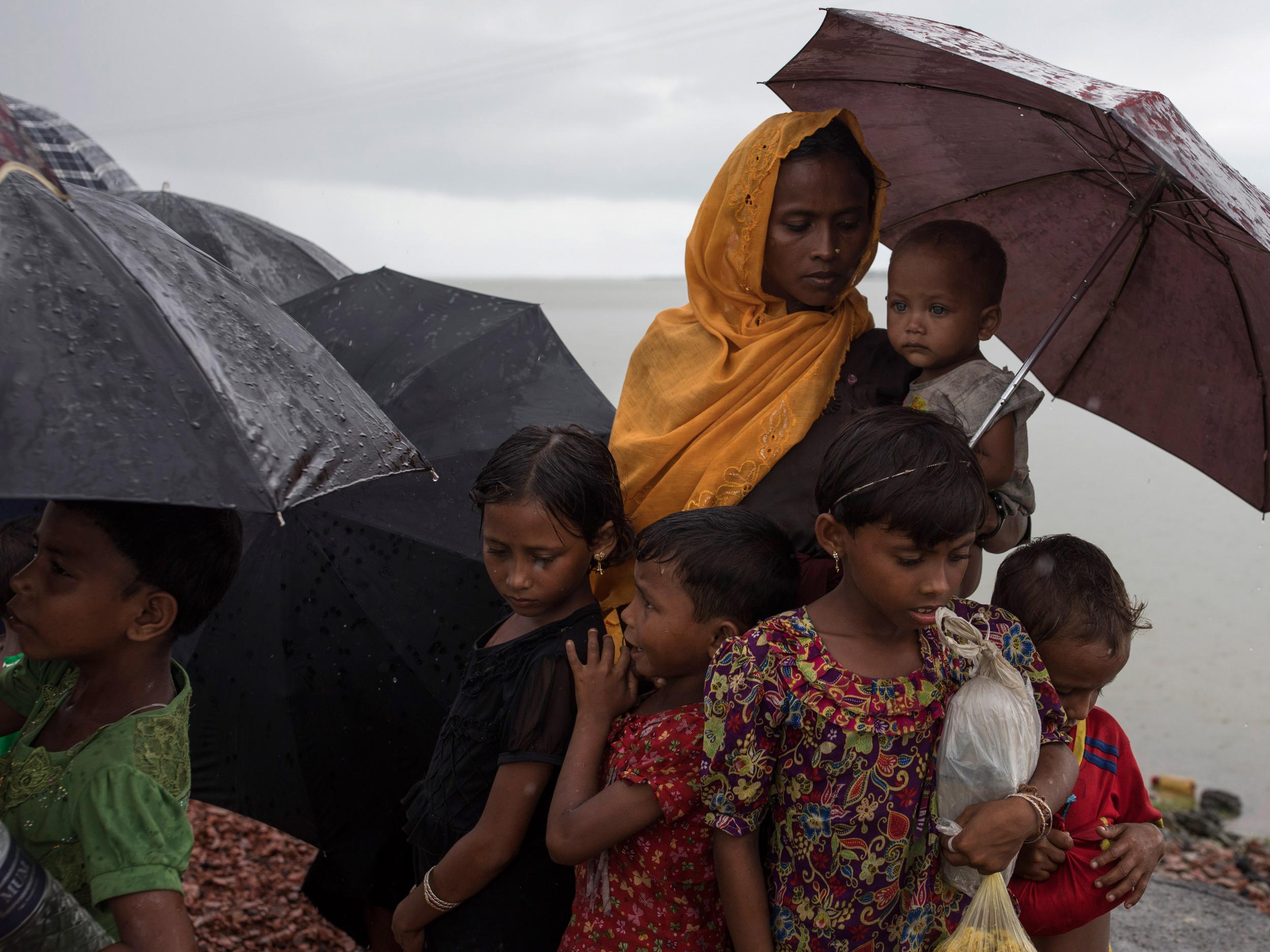Rohingya insurgents declare month-long unilateral ceasefire
Nearly 300,000 Rohingya have fled to Bangladesh and 30,000 non-Muslim civilians have been displaced inside Burma

Your support helps us to tell the story
From reproductive rights to climate change to Big Tech, The Independent is on the ground when the story is developing. Whether it's investigating the financials of Elon Musk's pro-Trump PAC or producing our latest documentary, 'The A Word', which shines a light on the American women fighting for reproductive rights, we know how important it is to parse out the facts from the messaging.
At such a critical moment in US history, we need reporters on the ground. Your donation allows us to keep sending journalists to speak to both sides of the story.
The Independent is trusted by Americans across the entire political spectrum. And unlike many other quality news outlets, we choose not to lock Americans out of our reporting and analysis with paywalls. We believe quality journalism should be available to everyone, paid for by those who can afford it.
Your support makes all the difference.Rohingya insurgents declared a month-long unilateral ceasefire, starting on 10 September, to enable aid groups to help ease a humanitarian crisis in northwest Burma.
Nearly 300,000 Rohingya have fled to Bangladesh and 30,000 non-Muslim civilians have been displaced inside Burma after the military launched a counter-offensive following attacks by the Arakan Rohingya Salvation Army (ARSA) insurgents on 30 police posts and an army base on 25 August.
"ARSA strongly encourages all concerned humanitarian actors resume their humanitarian assistance to all victims of the humanitarian crisis, irrespective of ethnic or religious background during the ceasefire period," ARSA said in a statement.
The impact of the move is unclear. The group does not appear to have been able to put up significant resistance against the military force unleashed in Burma's northwestern Rakhine state. In the last two weeks, thousands of homes have been burned down, dozens of villages uprooted and thousands of people are still on the move towards the border with Bangladesh.
The wave of hungry and traumatised refugees pouring into Bangladesh has strained aid agencies and local communities already helping hundreds of thousands displaced by previous waves of violence in Burma.
In its statement, ARSA called on the military to also lay down arms and allow humanitarian aid to all affected people.
Burma says its security forces are carrying out clearance operations to defend against ARSA, which the government has declared a terrorist organisation.
Rights monitors and fleeing Rohingya say the army and Rakhine Buddhist vigilantes have mounted a campaign of arson aimed at driving out the Muslim population.
On 8 Septmeber, the United Nations in Bangladesh found tens of thousands of refugees who had not been counted before, raising the count to 270,000 from some 164,000 the day before. On Saturday, that jumped by another 20,000 to 290,000.
On 9 September, thousands of Rohingya were milling on the road near the camp of Kutapalong, carrying bamboo and tarpaulin to build shacks. Children and women flocked to every stopping vehicle, begging.
Aid workers say a serious humanitarian crisis is also unfolding on the Myanmar side of the border.
Red Cross organisations are scaling up their operations in Rakhine after the United Nations had to suspend activities there following government suggestions that its agency had supported the insurgents. The United Nations evacuated non-critical staff from the area.
Thousands of displaced people in Rakhine have been stranded or left without food for weeks. Many are still trying to cross mountains, dense bush and rice fields to reach Bangladesh.
"The U.N. and INGOs have not been very welcome in Rakhine and...they are not able to operate and ensure the safety and security of their staff and volunteers," said Joy Singhal of the International Federation of Red Cross and Red Crescent Societies (IFRC).
The government had invited the Red Cross to assist them, she said.
Aid workers worry many Rohingya had been left without food since mid-July, when the World Food Programme (WFP), which had been providing food and cash assistance, was unable to operate.
The government said it would set up camps for internally displaced people in Rakhine but the move could draw opposition from U.N. humanitarian experts.
Join our commenting forum
Join thought-provoking conversations, follow other Independent readers and see their replies
Comments